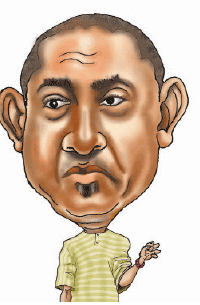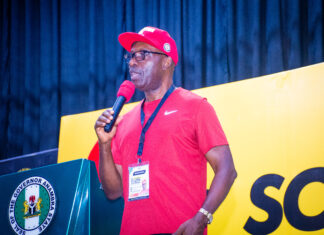By Mac Odu
0806 8909 467
ezemarkodu@yahoo.co.uk
Ndigbo are now a confused people with huge disconnect with their past, living without a sense of history; with avid quest for individual goal of self-enrichment; with little knowledge of what to do with excess wealth.
The Igbo leadership of the 1940s, 50s and 60s were more selfless and focused. They were in competition with Yoruba leadership in the south of the country. Large minds were in leadership. At national level, Nnamdi Azikiwe was a giant among his peers. Mbonu Ojike was unique with his “Boycott all boycottables”. Michael Okpara was focused on self-determination of Ndigbo as soon as he became Premier. The regions were fairly autonomous. Each region developed on its own steam in a loose federal structure.
Zik communicated with Igbo elite and travelled to create consensus among Ndigbo with his newspapers. The elite were few and were not educated. Ndigbo were preferred by colonists since they latched on technically to needs of the whites for technical manpower. Nigerian Railway was virtually their exclusive preserve since they came tops in Nigerian Railway Technical School of those days. They soon became train drivers, linesmen, clerks at headquarters and railway stations, train guards on trains, points-men at railway stations, traffic officers on trains and train guards on goods trains that combed the country in colonial bid to haul raw materials and produce to two ports of Lagos and Port Harcourt for shipment to Liverpool in England. The Yoruba were second in rank at the time.
The leaders of Ndigbo were connected with their people and upon settling down in their new posts took along their relations who showed discipline and tenacity along with them. In competition with others, they came out tops among other tribes. The spread of Ndigbo all over the country stemmed from this plank. Ndigbo made camp and provided goods and services to Nigerian citizens everywhere they settled.
Our leaders made sure that they reined in their relations and kept them in check. Those leaders were aware that if their integrity was impugned, everyone would suffer. Discipline in position of authority was evident. Ndigbo were first choice in employment as cooks, tradesmen and artisans for the simple reason that they delivered with finesse and consciousness of source of their livelihood.
Today, our leaders have lost our pristine pride in cooperation with one another for spread of wealth and happiness. In the period sketched above, communities selected their best, contributed communally to send them abroad in search of knowledge with which they might change the fortunes of their people. The leaders made a habit of returning to their people during festive seasons to inspect progress at the grassroots arising from resources they regularly sent home for betterment of their people. Now they run from our grassroots because their sources of wealth are doubtful and vastly inexplicable. They are detached from their people. Their people have lost all levels of leadership.
Overtones of conflict during Biafra is the watershed of this calamity. Poverty that stared them in the face afflicted their psyches deeply. The leaders of post-war Igboland failed to debrief their people soon after the war. No vestiges of organisations that brought us fame and fortune remained to create a link with our noble past. Traumatised youth had no patience. War maimed and crippled needed sympathy of leaders and got none. They consequently begged to live in settlements that considered them outcasts. Leaders drove by in pitiless unconcern. No leader worth his weight in gold spoke as in times past for Igbo unity. Most leaders during the war betrayed their followers soon after the war as competition for self-enrichment took centre stage of Igbo consciousness. Individualism crept in slowly and with it communal cohesion vanished completely. Friendship with distant tribes became desirable. Now we are frightened of the poor who languish in want in our native homelands. The disoriented and mischievous found fertile soil for assuming leadership of all clans, towns, villages and hamlets of Igboland. The key objective is to corner resources for family and social prestige. Demagogues conceive of plans to dispossess those who neglect their welfare especially when such elements only come home a few times in their usually short lives.
Igbo society is polarised into rich and poor without a middle class. The really educated elite are far from the relatively unproductive countryside. Farming is shunned because those who engaged in farming are ageing fast and youth have no incentives to till the soil with hands and plant and nurse crops and rear animals.
Igboland was blessed in the past two generations with leaders with foresight who left productive enterprises as heritage of Igboland. Their heritage is lost by greed of the succeeding two generations and counting. Plantations live shabbily as untended heritage of Chief Michael Okpara’s regime throughout Igboland, but they hold no attraction to our incoherent and disrespectful youth. Guidance of youth has atrophied out of existence for lack of nourishment. The ageing have no pupils to tend in all theatres on account of vanishing culture of respect for elders. No one wants to nurse positive ideas of others to fruition for the general good. Institutions are replicated for similar purposes across Igboland with leadership that continually faces fault-finding and subterfuge from village folk with little exposure.
Very few access capital for starting or sustaining farms. Where there is capital, it is diverted to quick money activities that are not positive for employment generation and real sector growth. Money made in high turnover in cities is used for building mansions for assertion of prestige instead of plants for productive ventures. Such plants have long gestation period which quick money allurement lives little room for. We have lost our cooperative spirit to individual wealth creation with its attendant result in garrisoning idle capital left in the villages for occasional use as status symbols of a preceding period.
Youth are restive about incapacity to change their circumstances and so they resort to crime of horrendous scale, including sacrifices to dark forces to come by resources for self-actualisation. These scenarios hold little prospect for evolving youth with right attitudes to life in Nigeria’s bounty of resources and productive activities. Male youth find education too tasking in their quick money horizon and so they drop out in large numbers into trade in the informal sector for day-to-day sustenance mainly targeted at show-off during seasons for public acclamation of their relevance. The youth are in dilemmas of want in abundance, weakness in strength of their number, distress in glass ceiling created by the political and economic elite in centripetal orbit, and lack of pristine dependence on elders in pupilage that gave us room to hold sway in pre-Biafra Nigeria.













